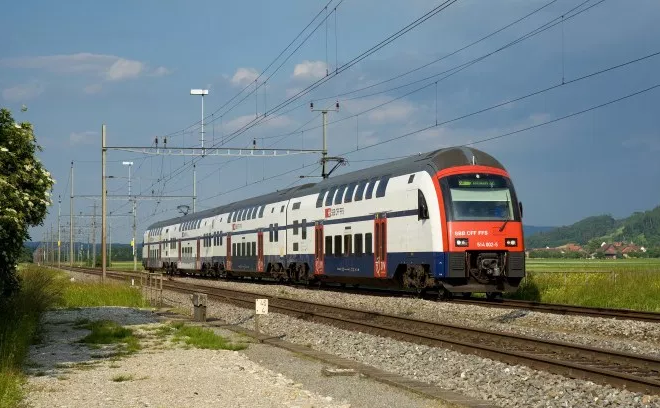Services at least every half hour that are closely coordinated, using faster, electrified light-weight passenger cars--these are all on deck for a newly envisioned integrated service that will encompass Amtraks' Capitol Corridors, San Joaquin trains, the Altamont Corridor Express (ACE) and even Caltrain in the future. "The California State Rail plan from 2018 envisions a vastly improved Altamont Corridor," said Dan Leavitt with the San Joaquin Joint Powers Authority, part of a consortium of agencies looking at improved rail service between the San Joaquin Valley and the Bay Area. "We're looking at increase frequencies and to go from Altamont across a future Dumbarton rail connection to a future Transbay station."
That and many other short and long-range goals were outlined at a talk at SPUR's San Jose location Wednesday afternoon. There will be incremental steps to improve the region's many rail corridors, many of which have rush-hour only service. The ACE train, for example, which runs between Stockton and San Jose, currently has only four trains a day--and all run only in the peak rush-hour direction. "Most of the line is single track," said Leavitt, explaining that ridership, despite the service limitations, has more than doubled in the last few years. "We're at 1.5 million riders a year now, getting close to being at capacity in terms of seating... we would run more trains if we could."
A project is now underway to extend the service to Modesto and Merced, where passengers will be able to continue to Bakersfield on the under-construction high-speed rail tracks. They're now planning for tunnels under the Altamont Pass and Niles Canyon to enable 60 minute express runs from Stockton to San Jose. "It would be mostly grade separated, electrified, separated from freight, and capable of 125 mph," he said. To put that in perspective, ACE currently takes over two hours. Of course, that's also years--and about $6 billion--off in the future. In the meantime, the agency is hoping to start Saturday service as early as next month, soon followed by seven-day-a-week service after that. And using funds granted from gas taxes, they will extend ACE to Sacramento and add stations, as shown in the map below.
Meanwhile, Rob Padgette of the Capital Corridor Joint Powers Authority, which operates Amtrak services between Sacramento and San Jose via Oakland, talked about a plan to shave 13 minutes off of the current run. They plan is to shift passenger service from tracks that run through Niles to existing tracks along the coast. "This will provide a really direct service to San Jose. It also unlocks tons of opportunities... we will be able to add a second track to dramatically expand our service," he explained. That will mean shifting freight service off of the coastal tracks and onto the Niles alignment. It means Capitol Corridor trains will no longer serve Fremont and Hayward stations, which are two of their least utilized anyway. Instead, the idea is to create a single large, inter-modal station to serve the two cities, but much closer to the coast, with connecting bus services across the Dumbarton bridge to the Peninsula. "This will open up a whole new market," he explained. They're hoping to start construction by 2024, with funding coming from Regional Measure 3 and the gas tax, among other sources.
This will help them address surging ridership in the South Bay, which has been steadily increasing. The chart below lays it out:
The new alignment will also set them up for projects a bit further out on the horizon, including a restored Dumbarton rail crossing, so Capitol Corridor and/or ACE trains might one day go directly to East Palo Alto and Redwood City.
Even further out: the Capitol Corridor Joint Powers Authority is working with BART and others on developing plans for a second Transbay crossing between Oakland and San Francisco. "The idea is that this would be a shared use, BART plus standard gauge facility that could provide a single-seat ride from Sacramento to San Francisco--and it could help Caltrain and others take advantage of this," he explained. Such a long tunnel will require electrified service of course, but Padgette said he's hopeful that too is coming--and that California's commitment to renewable energies makes that almost inevitable for passenger rail and perhaps even one day for freight carriers.
(A second tube--and the redundancy it would provide--is sorely needed. As Streetsblog writes this, word just came down that Transbay service is currently suspended due to a gas leak near the West Oakland side of the tunnel.)
With so many railroads and operating agencies, who would ultimately run the new services? The hope is to make that transparent to the user. "The California State Rail Plan is an operator-neutral plan," said Padgette. "But the idea is we’d have a much higher level of service throughout the region."
For more events like these, visit SPUR’s events page.






